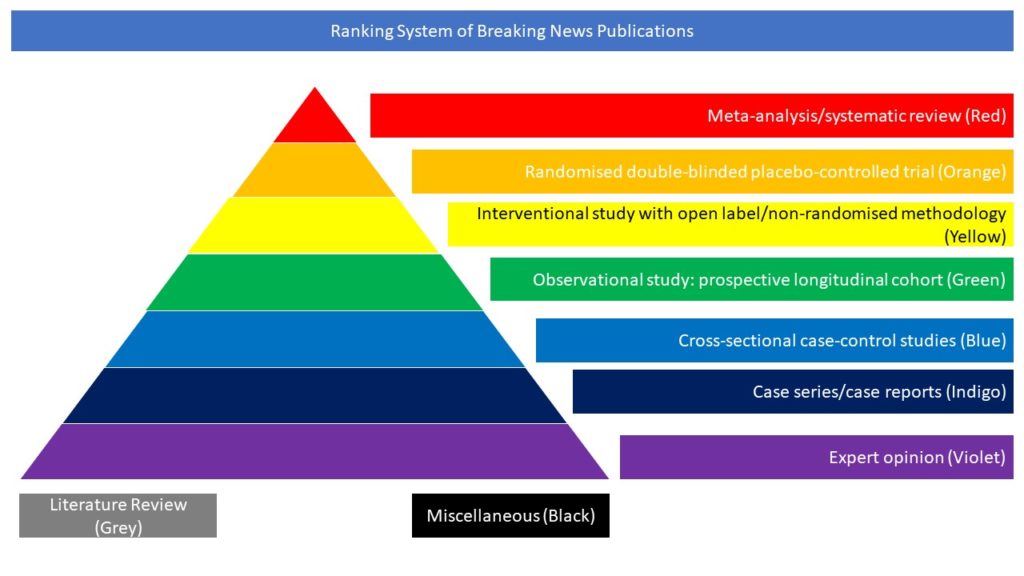Observational studies: prospective longitudinal cohort (Green)
Our editors’ pick of Covid-related observational studies from the scientific press for June 2022.
CSF Biomarkers in COVID-19 Associated Encephalopathy and Encephalitis Predict Long-Term Outcome
60 hospitalized patients with COVID-19 and acute neurological symptoms, 25 (42%) of them with encephalopathy and 14 (23%) with encephalitis, were enrolled in this prospective study and followed up at 18 months. In the acute phase, the authors analyzed the serum and cerebrospinal fluid (CSF) profile (inflammatory cytokines, antibodies against neural antigens and markers of neuronal damage) of patients and healthy controls. COVID-19 patients had higher levels of IL-18, IL-6, and IL-8 in both serum and CSF, MCP1 was elevated only in CSF, while IL-10, IL-1RA, IP-10, MIG and NfL were increased only in serum. No differences were found between patients with encephalitis and encephalopathy. 14-3-3, NfL, IL-18, IL-1RA and IL-8 significantly correlated with acute COVID-19 severity, measured as mild (without oxygen supplementation), moderate (oxygen), and severe (assisted ventilation). At 18 months, only levels of 14-3-3 and NfL in CSF significantly correlated with neurologic disability measured by the Modified Rankin Scale. G-CSF, IL-17a, IL-1b, IFN-γ, MCP3 and TNF-α and antibodies against neural antigens were undetectable or negligible in the serum and CSF in healthy controls and COVID-19 patients. The authors conclude that while there is an inflammatory response in these patients, only markers of neuronal damage predict long-term functional outcome.
Guasp M, Muñoz-Sánchez G, Martínez-Hernández E, Santana D, Carbayo Á, Naranjo L, Bolós U, Framil M, Saiz A, Balasa M, Ruiz-García R, Sánchez-Valle R and The Barcelona Neuro-COVID Study Group (2022) CSF Biomarkers in COVID-19 Associated Encephalopathy and Encephalitis Predict Long-Term Outcome. Front. Immunol. 13:866153. doi: 10.3389/fimmu.2022.866153









